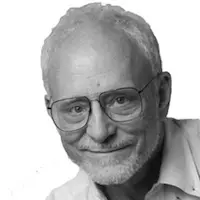Elwyn Berlekamp
Professor emeritus of mathematics and EECS at the University of California, Berkeley. , Ph.D. - MIT.
Recommended book categories
Professor Berlekamp has recommended books in the following areas:
Berlekamp was born in Dover, Ohio. His family moved to Northern Kentucky, where Berlekamp graduated from Ft. Thomas Highlands high school in Ft. Thomas, Campbell county, Kentucky. While an undergraduate at the Massachusetts Institute of Technology (MIT), he was a Putnam Fellow in 1961. He completed his bachelor’s and master’s degrees in electrical engineering in 1962. Continuing his studies at MIT, he finished his Ph.D. in electrical engineering in 1964; his advisors were Robert G. Gallager, Peter Elias, Claude Shannon, and John Wozencraft. Berlekamp taught electrical engineering at the University of California, Berkeley from 1964 until 1966, when he became a mathematics researcher at Bell Labs. In 1971, Berlekamp returned to Berkeley as professor of mathematics and EECS, where he served as the advisor for over twenty doctoral students. He is now professor emeritus.
Berlekamp is the inventor of an algorithm to factor polynomials, and is one of the inventors of the Welch-Berlekamp algorithm and the Berlekamp–Massey algorithms, which are used to implement Reed–Solomon error correction. In the mid-1980s, he was president of Cyclotomics, Inc., a corporation that developed error-correcting code technology. With John Horton Conway and Richard K. Guy, he co-authored Winning Ways for your Mathematical Plays, leading to his recognition as one of the founders of combinatorial game theory. He has studied various games, including dots and boxes, Fox and Geese, and, especially, Go. With David Wolfe, Berlekamp co-authored the book Mathematical Go, which describes methods for analyzing certain classes of Go endgames.
Outside of mathematics and computer science, Berlekamp has also been active in money management. In 1986, he began information-theoretic studies of commodity and financial futures. In 1989, Berlekamp purchased the largest interest in a trading company named Axcom Trading Advisors. After the firm’s futures trading algorithms were rewritten, Axcom’s Medallion Fund had a return (in 1990) of 55%, net of all management fees and transaction costs. The fund has subsequently continued to realize annualized returns exceeding 30% under management by James Harris Simons and his Renaissance Technologies Corporation.
AWARDS:
-
2013: Stanford University’s “Kailath Lecture”
-
2013: Fellow, American Mathematical Society
-
2011: University of South California’s “Viterbi Lecture”
-
2006: University of Calgary “Richard & Louise Guy Lecture Series”
-
2004: American Math Society’s “Arnold Ross Lecturer”
-
2001: Fellow, American Association for the Advancement of Science
-
1999: National Academy of Sciences, Sec.11: Mathematics (and affiliate member, Sec. 34: Computer and Information Sciences) Plus: NAS/NAE Boards and Committees
-
1998: Golden Jubilee Award
-
1996: American Academy of Arts and Sciences, Mathematics Section
-
1995: Motion Picture Academy Technical Oscar for Cinema Digital Sound
-
1993: Claude E. Shannon Award
-
1991: R. W. Hamming Medal
-
1990: Koji Kobayashi Computers and Communications Award
-
1984: Centennial Medal (IEEE)
-
1977: National Academy of Engineering, Computer Science Section
-
1975-1976: ACM Lecturer for Special Interest Group on Symbolic and Algebraic Manipulation
-
1971: Elected Fellow of IEEE
-
1971: Eta Kappa Nu “Outstanding Young Electrical Engineer” Award
-
1969: Best Research Paper Award (IEEE Information Theory Society)
-
1961: William Lowell Putnam Intercollegiate Mathematics Competition, top 5
